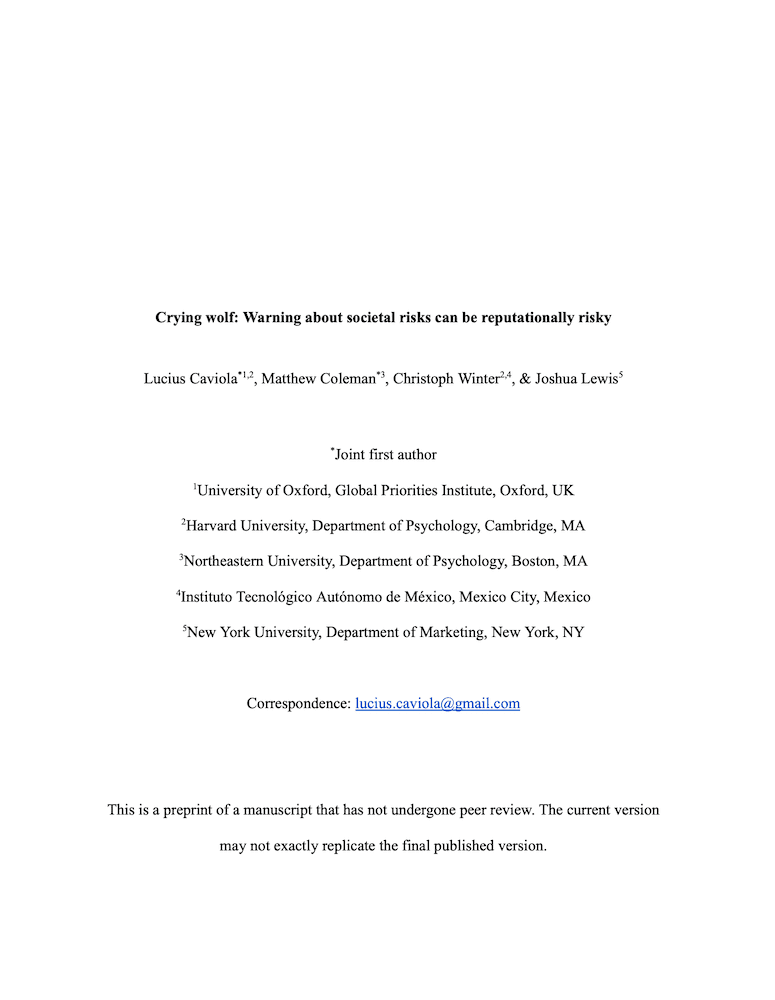Crying wolf: Warning about societal risks can be reputationally risky
Lucius Caviola (Global Priorities Institute University), Matthew Coleman (Northeastern University), Christoph Winter (ITAM & Harvard) and Joshua Lewis (New York University)
GPI Working Paper No. 15-2024
Society relies on expert warnings about large-scale risks like pandemics and natural disasters. Across ten studies (N = 5,342), we demonstrate people’s reluctance to warn about unlikely but large-scale risks because they are concerned about being blamed for being wrong. In particular, warners anticipate that if the risk doesn’t occur, they will be perceived as overly alarmist and responsible for wasting societal resources. This phenomenon appears in the context of natural, technological, and financial risks and in US and Chinese samples, local policymakers, AI researchers, and legal experts. The reluctance to warn is aggravated when the warner will be held epistemically responsible, such as when they are the only warner and when the risk is speculative, lacking objective evidence. A remedy is offering anonymous expert warning systems. Our studies emphasize the need for societal risk management policies to consider psychological biases and social incentives.
Other working papers
Misjudgment Exacerbates Collective Action Problems – Joshua Lewis (New York University) et al.
In collective action problems, suboptimal collective outcomes arise from each individual optimizing their own wellbeing. Past work assumes individuals do this because they care more about themselves than others. Yet, other factors could also contribute. We examine the role of empirical beliefs. Our results suggest people underestimate individual impact on collective problems. When collective action seems worthwhile, individual action often does not, even if the expected ratio of costs to benefits is the same. …
Doomsday rings twice – Andreas Mogensen (Global Priorities Institute, Oxford University)
This paper considers the argument according to which, because we should regard it as a priori very unlikely that we are among the most important people who will ever exist, we should increase our confidence that the human species will not persist beyond the current historical era, which seems to represent…
Will AI Avoid Exploitation? – Adam Bales (Global Priorities Institute, University of Oxford)
A simple argument suggests that we can fruitfully model advanced AI systems using expected utility theory. According to this argument, an agent will need to act as if maximising expected utility if they’re to avoid exploitation. Insofar as we should expect advanced AI to avoid exploitation, it follows that we should expected advanced AI to act as if maximising expected utility. I spell out this argument more carefully and demonstrate that it fails, but show that the manner of its failure is instructive…

